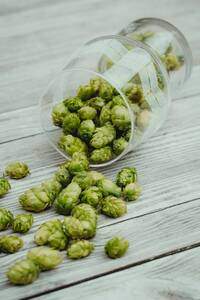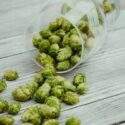
14 Nov Polyphenols in Hops Studies for Role in Alzheimer’s Disease Prevention
MedicalResearch.com Interview with:
Alessandro Palmioli PhD
Cristina Airoldi PhD
Department of Biotechnology and Biosciences,
University of Milano-Bicocca, NeuroMI,
Center for Neuroscience, University of Milano-Bicocca
MedicalResearch.com: What is the background for this study?
 Response: We started many years ago by studying some natural and synthetic molecules that were able to counteract the early stages of this disease. With a view to early prevention, we wondered if these molecules could be routinely taken with the diet or dietary supplements. So our studies focused on the search for bioactive molecules present in food and edible plants.
Response: We started many years ago by studying some natural and synthetic molecules that were able to counteract the early stages of this disease. With a view to early prevention, we wondered if these molecules could be routinely taken with the diet or dietary supplements. So our studies focused on the search for bioactive molecules present in food and edible plants.
Hops are very rich in polyphenolic compounds, and for this reason it is historically used for the production of beer, but also for the preparation of herbal teas and infusions, and its uses in traditional medicine are known. In recent years we have also collected interesting results on Coffee, Sage, Radix Imperatoriae, Cocoa and Cinnamon extracts.
MedicalResearch.com: What are the main findings?
Response: Overall, we founds that polyphenols naturally contained in Hops and other edible sources are able to counteract the molecular mechanisms underlying the development of Alzheimer’s disease. In particular, the Hop flower extract enriched mainly in chlorogenic acids, procyanidins and flavonoids is able to inhibit the aggregation of amyloid peptides and protects neuronal cells from oxidative stress. Finally, protective effects were also observed in the in vivo animal model (C. Elegans) of Alzheimer’s-related paralysis.
MedicalResearch.com: What should readers take away from your report?
Response: The take-home message is that the early prevention of diseases for which there are no effective treatments can make use of natural substances. In fact, Nature demonstrates to be the most talented and creative chemist existing, able to provide us with many molecules extremely useful for the prevention, as well as for the therapy of many diseases. It is up to us, chemists and biotechnologists, to develop suitable methodologies to discover them, enhance them and allow them to be as accessible as possible.
MedicalResearch.com: What recommendations do you have for future research as a results of this study?
Response: Our efforts are (…and will be…) aimed at identifying the molecular mechanisms underlying the disease and the compounds capable of counteracting them. This information will be crucial in the future for both the formulation of naturally derived nutraceuticals and for the design of new synthetic drugs.
MedicalResearch.com: Is there anything else you would like to add?
Response: This work may not justify drinking a lot of bitter brews, it shows that hop compounds could serve as the basis for nutraceuticals preventing the development of Alzheimer’s disease.
Citation:
Alessandro Palmioli, Valeria Mazzoni, Ada De Luigi, Chiara Bruzzone, Gessica Sala, Laura Colombo, Chiara Bazzini, Chiara Paola Zoia, Mariagiovanna Inserra, Mario Salmona, Ivano De Noni, Carlo Ferrarese, Luisa Diomede, and Cristina Airoldi
ACS Chemical Neuroscience
DOI: 10.1021/acschemneuro.2c00444
The information on MedicalResearch.com is provided for educational purposes only, and is in no way intended to diagnose, cure, or treat any medical or other condition. Always seek the advice of your physician or other qualified health and ask your doctor any questions you may have regarding a medical condition. In addition to all other limitations and disclaimers in this agreement, service provider and its third party providers disclaim any liability or loss in connection with the content provided on this website.
Last Updated on November 14, 2022 by Marie Benz MD FAAD
